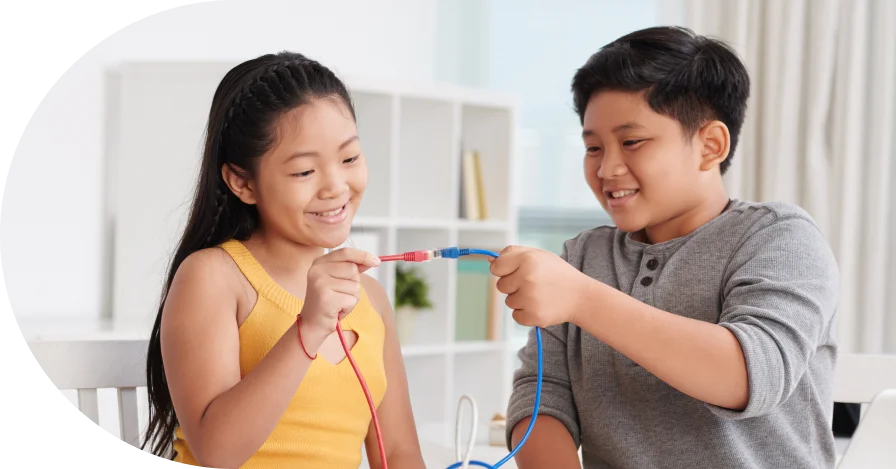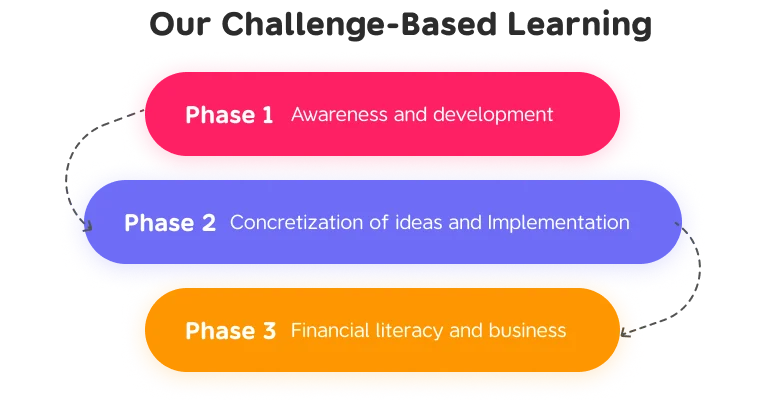
Entrepreneurship
Empowering young minds to be agile and thrive in the fast-paced and ever-changing world through hands-on projects and real-world problem solving.
Why learn Entrepreneurship?
 Future-Proofing Skills
Future-Proofing Skills
With the majority of future jobs yet to be invented, it's crucial to equip students with skills that transcend specific roles. An entrepreneurial mindset fosters adaptability, creativity, and a commitment to continuous learning, empowering students to thrive in an ever-changing landscape (IFTF, 2017; Obschonka et al., 2012).
 Early Development of Entrepreneurial Mindset
Early Development of Entrepreneurial Mindset
Research suggests that elementary and middle school students are naturally more open and imaginative, making it an opportune time to instill entrepreneurial behaviors. By nurturing these mindsets from an early age, kids are better prepared to tap into their creativity, take risks, and develop the adaptability needed for future success (Gemino et al., 2020; Krueger Jr, Reilly, & Carsrud, 2000)






